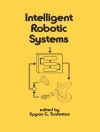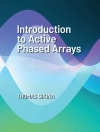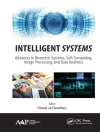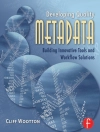Learn all about the major trends and future advancements in
ICT!
ICT Futures provides an insightful introduction to the
major technology trends in Information and Communication
Technologies (ICT), and to the economic, commercial and societal
environment which is shaping them.
The experienced author-team, consisting of experts from both
industry and academia, addresses:
* The interaction between people and technology – how ICT
affects every day social practices; the rise of social computing;
how the way we interact with information and the devices we use are
changing; and how trust can be assured over the Internet.
* The underlying ICT infrastructure – the semantic web and
the semantic intranet; the real-time service-oriented
infrastructure; the future optical network; self-managing networks
and agents; P2P technologies; pervasiveness; mobility and wireless
technology; and how all this infrastructure can be made
secure.
* ICT technology and how it is affecting industries as
diverse as health, finance, retail and law.
The book covers a vast wealth of material, with a strong focus
upon the impending changes to the way ICT operates.This reference
is a valuable tool for people in managerial roles, CIOs, CTOs,
business and technology strategists, and students undertaking
technology MBAs, or technology modules in general MBAs.
Professionals working in ICT will also find this book
valuable.
Cuprins
Editor Biographies.
List of Contributors.
Foreword.
Introduction.
Part One: People and Technology.
1. Predicting the Socio-technical Future (and Other Myths) (Ben
Anderson and Paul Stoneman).
2. Social Networks, Social Computing and Knowledge Management
(Nicholas J. Kings, John Davies, David Verrill, Sinan Aral, Erik
Brynjolfsson and Marshall van Alstyne).
3. Device Futures (Jonathan Mitchener).
4. Online Trust and Customer Power: The Emergence of Customer
Advocacy (Glen L. Urban).
Part Two: Building the Infrastructure.
5. The Semantic Web – From Vision to Reality (Paul Warren and
John Davies).
6. Flexible ICT Infrastructure (Mike Fisher and Paul Mc Kee).
7. Achieving Security in Enterprise IT (Theo Dimitrakos and Ivan
Djordjevic).
8. The Future All Optical Network – Why We Need It and How We
Get There (David Payne).
9. End-to-End Service Level Agreements for Complex ICT Solutions
(John Wittgreffe, Mark Dames, Jon Clark and James Mc Donald).
10. Mobility and ICT (Richard Dennis and Dave Wisely).
11. Pervasive Computing (David Heatley, George Bilchev and
Richard Tateson).
12. Artificial Intelligence Comes of Age (Simon Thompson).
Part Three: Applying Technology.
13. Healthcare (Chris Wroe, Paul Garner and Janette
Bennett).
14. Supply Chain Management in the Retail Sector (Edgar E.
Blanco and Chris Caplice).
15. Technology Innovation in Global Financial Markets (Lesley
Gavin)
16. Technology and Law: The Not So Odd Couple (Marta Poblet,
Pompeu Casanovas and Richard Benjamins).
Part Four: Final Words.
17. Over the Horizon (Ian Pearson).
18. Conclusions (Paul Warren, John Davies and David Brown).
Index.
Despre autor
Paul Warren works within the IT Futures Centre at BT. He is
currently Project Director of ACTIVE (href=’http://www.active-project.eu/’>http://www.active-project.eu),
a European project in the area of collaborative knowledge
management. recent previous roles have been in the areas of
service-oriented infrastructure and semantic technologies – both at
the forefront of developments in ICT. At an earlier stage in his
career, Paul worked on technology strategy and technology
foresight, investigating areas as diverse as e Business and novel
forms of computing. Paul has published widely on knowledge
management, semantic technologies and technology foresight. Paul
holds a degree in Theoretical Physics from Cambridge University and
a MSc in Electronics from Southampton University. Paul can be
contacted at href=’mailto:[email protected]’>[email protected].
Dr John Davies Leads the Next Generation Web research
group within the IT Futures Centre at BT. Current interests centre
around the application of semantic web and Web 2.0 technology to
knowledge management, business intelligence, information
integration and service-oriented environments. John is chairman of
the European many papers and books in the area of semantic
technology and its business applications, web-based information
management and knowledge management; and has served on the program
committee of numerous conferences in these areas. He is a Fellow of
the British Computer Society and a Chartered Engineer. Earlier
research at BT let to the development of a set of knowledge
management tools which are the subject of a number of patents.
These tools ere spun out of Bt and are now marketed by Infonic Ltd,
of which John is Group Technical Advisor.John received the BT
Technology Award for Technology Entrepreneurship for his
contribution to the Creation of Infonic. John can be contacted at
href=’mailto:[email protected]’>[email protected].
David Brown is Head of the Foresight team in BT Research
and Venturing where his key role is to help BT and its customers
manage the future. His role is particularly important to the
development of BT, and along with the contribution so his other
team members, he is successfully predicting fast-paced changes in
technology. This ensures that BT invests widely and continues to
offer the right services needed by customers, both for today and
tomorrow. David has written many articles on technology strategy
and economics. Previous reasonability within his time at BT
includes leading teams in the network strategy, product management
and applications development fields. Before joining BT, David
worked for ICL as a systems engineer. David gained a BSc in
Mathematics from Durham University and h olds a Sloan Fellowship
MSc in Economics from the London Business School. David can be
contacted at href=’mailto:[email protected]’>[email protected]












